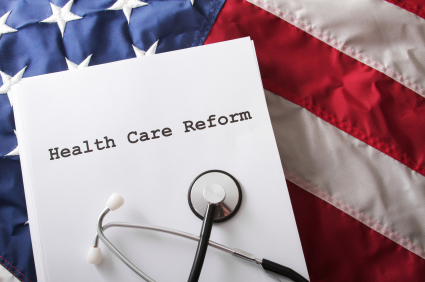
Health Care Law Blog
 The 4th Circuit Court of Appeals has issued two opinions related to the Patient Protection and Affordable Care Act ("PPACA"), also commonly referred to as Health Care Reform. What is interesting in these two decisions is that the appellate court refrains from ruling on the constitutionality of PPACA. Instead, it does not even address the issue because it found adequate grounds to dismiss both cases based on lack of jurisdiction.
The 4th Circuit Court of Appeals has issued two opinions related to the Patient Protection and Affordable Care Act ("PPACA"), also commonly referred to as Health Care Reform. What is interesting in these two decisions is that the appellate court refrains from ruling on the constitutionality of PPACA. Instead, it does not even address the issue because it found adequate grounds to dismiss both cases based on lack of jurisdiction.
In Commonwealth of Virginia v Kathleen Sebelius, Virginia had challenged the constitutionality of the "individual mandate" provision of PPACA, which financially penalizes individual taxpayers who fail to maintain health insurance coverage. The lower court ruled in favor of Virginia by finding the individual mandate provision to be unconstitutional. The appellate court determined that the constitutional issue should not even have been considered because the sole plaintiff, i.e., Virginia, lacked standing to initiate and pursue the case. It noted that PPACA, specifically with regard to the individual mandate provision, did not impose an obligation on Virginia. Accordingly, Virginia did not suffer from an injury that could be remedied through the court system. In the appellate court's words, "Virginia lack[ed a] personal stake in this case." The appellate court therefore lacked jurisdiction to address the constitutional question. As a result, the appellate court vacated the lower court's judgment and instructed that the case be dismissed for lack of jurisdiction.
The other PPACA-related opinion released by the 4th Circuit Court of Appeals today was Liberty University et. al v Timothy Geitner et. al. In that case, plaintiffs challenged the constitutionality of the individual mandate as well as the "employer mandate," which imposes an assessment on a large employer if it has employees that receive a tax credit or government subsidy to offset payments for health-related expenses. The plaintiffs requested an injunction that would restrain the Secretary of the Treasury (among others) from implementing and enforcing PPACA. The district court directly addressed the constitutionality of the challenged PPACA provisions and found them to be constitutional. The appellate court determined the lower court had improperly considered the merits of the case because it lacked jurisdiction to do so. The appellate court determined that the case constituted a pre-enforcement action that sought to prevent the assessment of a tax before it was imposed. As such, the court lacked jurisdiction to hear the case. Therefore, the 4th Circuit Court of Appeals vacated the lower court's decision and remanded the case with instructions that it should be dismissed.
Unlike the recent Courts of Appeal decisions that have addressed PPACA (discussed here and here), the 4th Circuit Court of Appeals sidesteps the pivotal issue of the constitutionality of the law. In both cases discussed above, it summarily dismissed the action on jurisdictional grounds and avoided addressing the "big question" of whether PPACA should be upheld.
If you would like more information on the legal developments related to PPACA, stay tuned to this blog or contact one of the health care law attorneys at Foster Swift.
- Shareholder
With a business-minded approach, and service-oriented delivery, Mindi helps clients navigate challenges and solve problems in the areas of employee benefits law and health care law. Mindi has spoken and written extensively on ...

